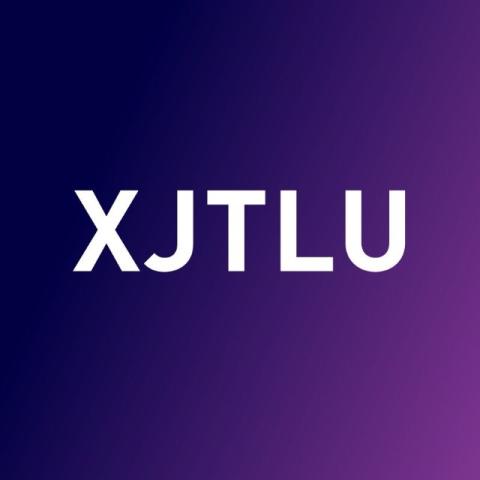
Greener assessment: transitioning to online marking
Universities should lead by example on sustainability issues, looking at what they can do to shrink their environmental impact. Here, Ling Xia and Yao Wu outline a project that could herald a major reduction in their institution’s paper consumption
People are rightly concerned about plastic waste, but many might be equally shocked by the amount of paper in municipal waste – what consumers throw in the trash. In fact, in the US, it is the largest source of rubbish, with printing second only to packing as the largest generator of waste paper, research has shown. Given that written coursework is an important assessment component in English for academic purposes (EAP) modules, the printing and storage of essays of more than 8,000 undergraduate students per semester has long been a concern for the staff at our university’s English Language Centre.
In three years, we have helped about 200 language teachers successfully transition to online marking through a carefully planned, staged and implemented project. This has enabled the centre to reduce its carbon footprint and adopt a greener approach to assessment.
If every department at the university did the same, it could save roughly 200kg of paper every year, equating to about 500kg of wood.
How we rolled out online marking
As well as reducing carbon footprint, online marking streamlines the marking process and saves teachers’ time by cutting out tedious tasks such as printing and manually inputting students’ marks. However, switching to online marking can be daunting to staff who may have concerns about the technology and the risk of eye strain. During our project, we discovered that it was crucial to decide how the new marking approach would be rolled out.
The online marking project was initially trialled within a module team who were passionate about the change. With the support of the university’s educational technology department, the team helped to develop a customised rubric for EAP modules, initial online marking protocols and guide documents.
Their successful experiences were later shared with more staff members through in-house professional development activities. Online marking was then rolled out to another large module team with the improved Moodle plug-in.
- Driving change: creating student-NGO partnerships for climate solutions
- THE podcast: universities aren’t too small to lead the climate crisis fight
- Ease students’ climate anxiety by encouraging climate action
After feedback from staff and students was collected via focus groups and surveys, more improvements were incorporated before online marking was rolled out to the entire Year 2 EAP module teams and later to the entire English Language Centre in 2019.
This assessment method is not only greener but provides a secure and efficient way for staff in disparate geographical areas to mark assessments – a point underlined when the pandemic scattered our staff members to six time zones.
Top tips for successfully introducing online marking
Pilot the process at a small scale and collect user feedback before a wider roll-out
Positive peer feedback is one of the most effective strategies to gain the buy-in of the wider staff community. Instead of mandating a top-down approach, witnessing the streamlined online marking process in a marking cycle for two large modules made the roll out to remaining modules easier since staff had seen positive examples.
Offer different forms of training materials for different purposes
Five types of training materials were designed for this project. Video tutorials are efficient in introducing the overall marking process, while step-by-step screenshots are handy when teachers need to understand a particular step. Checklists are used by module conveners to quickly self-check the action items, and hands-on sessions and FAQs can tackle potential issues.
Use targeted communications for staff members with different roles
Besides the marking process that is expected by all teachers, module conveners need to customise the template, monitor moderation and release marks online. Hence, it is crucial to have an overview of the assessment timelines in different modules and regular communication between teaching support staff and module conveners. Regular refresher training sessions for new teachers are also necessary.
Share new ideas and seek professional advice
University teaching staff have a wide range of technological backgrounds. If you have a vision related to digitising any learning and teaching activity to improve its effectiveness, sustainability credentials or convenience, reach out to your educational technology team or seek professional advice in online forums to make it happen.
Share concerns or difficulties to inform improvements
If you have any doubts or reservations about a technological initiative during online education, be open-minded and share your concerns. Valuable improvements in the marking process were made based on the constructive feedback received from different voices. For example, the centre commissioned and customised two learning management system (LMS) plug-ins, one to ensure each marker’s anonymity and the other an advanced mark-deduction method. Both are free to use for our global community.
World Wildlife Fund’s recent review shows that the pulp and paper industry uses more than 40 per cent of all industrial wood traded globally. By scaling projects like this one to transition to greener assessment, we believe higher education could significantly improve the sustainability of day-to-day teaching and learning activities.
Ling Xia is a principal language lecturer and the director of the English Language Centre, and Yao Wu is a Chinese language lecturer at the Modern Languages Centre and team leader of the School of Languages IT team, both at Xi’an Jiaotong-Liverpool University.
If you would like advice and insight from academics and university staff delivered direct to your inbox each week, sign up for the Campus newsletter.




